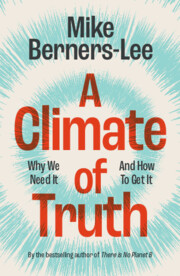Refine search
Actions for selected content:
155 results
30th year birthday celebration of the journal of management and organization: Contributions and future directions
-
- Journal:
- Journal of Management & Organization , First View
- Published online by Cambridge University Press:
- 08 September 2025, pp. 1-9
-
- Article
-
- You have access
- Open access
- HTML
- Export citation
Chapter 1 - Introduction
-
-
- Book:
- Questioning Conventional Assumptions of Competition Dynamics
- Published online:
- 07 May 2025
- Print publication:
- 21 August 2025, pp 1-15
-
- Chapter
- Export citation
Chapter 10 - Bringing Economics and Business into educational settings
- from Part II - HASS concepts and sub-strands
-
-
- Book:
- Making Humanities and Social Sciences Come Alive
- Published online:
- 02 August 2025
- Print publication:
- 14 August 2025, pp 171-190
-
- Chapter
- Export citation
Chapter 6 - Multilevel Marketing Groups
- from Section 1 - Typology
-
-
- Book:
- A Clinical and Forensic Guide to Cults and Persuasive Leadership
- Published online:
- 19 June 2025
- Print publication:
- 03 July 2025, pp 118-131
-
- Chapter
- Export citation
Between a Rock and a Hard Place: Why Labor (Partially) Relinquished Its Institutional Resources in Belgium and the Netherlands
-
- Journal:
- Comparative Studies in Society and History / Volume 67 / Issue 3 / July 2025
- Published online by Cambridge University Press:
- 08 April 2025, pp. 547-569
-
- Article
-
- You have access
- Open access
- HTML
- Export citation

A Climate of Truth
- Why We Need It and How To Get It
-
- Published online:
- 27 March 2025
- Print publication:
- 27 March 2025
4 - The Middle Layer of the Polycrisis
-
- Book:
- A Climate of Truth
- Published online:
- 27 March 2025
- Print publication:
- 27 March 2025, pp 91-124
-
- Chapter
- Export citation
9 - Getting Truth into Business
-
- Book:
- A Climate of Truth
- Published online:
- 27 March 2025
- Print publication:
- 27 March 2025, pp 193-211
-
- Chapter
- Export citation
The Threat to Indonesian Democracy in the New Gilded Age of Trump
-
- Journal:
- Asia-Pacific Journal / Volume 15 / Issue 12 / June 2017
- Published online by Cambridge University Press:
- 14 March 2025, e2
-
- Article
-
- You have access
- Open access
- Export citation

Japan's New Industrial Policy
-
- Published online:
- 07 March 2025
- Print publication:
- 03 April 2025
-
- Element
- Export citation
13 - The Parable of the Pounds (Lk 19:1–27)
-
- Book:
- Luke's Unique Parables
- Published online:
- 28 February 2025
- Print publication:
- 06 March 2025, pp 155-172
-
- Chapter
- Export citation

Communication Skills for Business Professionals
-
- Published online:
- 25 February 2025
- Print publication:
- 15 January 2025
-
- Textbook
- Export citation
Seeking friends and influencers: business and labor groups lobbying in the Chilean congress
-
- Journal:
- Business and Politics / Volume 26 / Issue 4 / December 2024
- Published online by Cambridge University Press:
- 21 October 2024, pp. 665-683
-
- Article
- Export citation
Why business adoption of quantum and AI technology must be ethical
-
- Journal:
- Research Directions: Quantum Technologies / Volume 2 / 2024
- Published online by Cambridge University Press:
- 30 September 2024, e4
-
- Article
-
- You have access
- Open access
- HTML
- Export citation

Peopling for Profit in Imperial Brazil
- Directed Migrations and the Business of Nineteenth-Century Colonization
-
- Published online:
- 26 September 2024
- Print publication:
- 13 June 2024
-
- Book
-
- You have access
- Open access
- Export citation
China in Africa: companies as enablers and beneficiaries? An empirical evaluation of state-business relations in the Forum on China-Africa Cooperation
-
- Journal:
- Business and Politics / Volume 26 / Issue 4 / December 2024
- Published online by Cambridge University Press:
- 18 September 2024, pp. 573-597
-
- Article
- Export citation
6 - Fighting “Woke Capitalism”
-
- Book:
- Polarized by Degrees
- Published online:
- 05 September 2024
- Print publication:
- 05 September 2024, pp 204-240
-
- Chapter
- Export citation
2 - Loss of Lives, Livelihoods and Love
- from Part I - Apocalypse No!
-
- Book:
- The Peace Formula
- Published online:
- 31 August 2024
- Print publication:
- 15 August 2024, pp 20-30
-
- Chapter
- Export citation
Part IV - Building a Career
-
- Book:
- The Cambridge Companion to Composition
- Published online:
- 25 May 2024
- Print publication:
- 30 May 2024, pp 285-318
-
- Chapter
- Export citation
7 - Sexuality and Consumerism in the Modern World: The Business of Pleasure
-
-
- Book:
- The Cambridge World History of Sexualities
- Published online:
- 26 April 2024
- Print publication:
- 16 May 2024, pp 136-158
-
- Chapter
- Export citation
